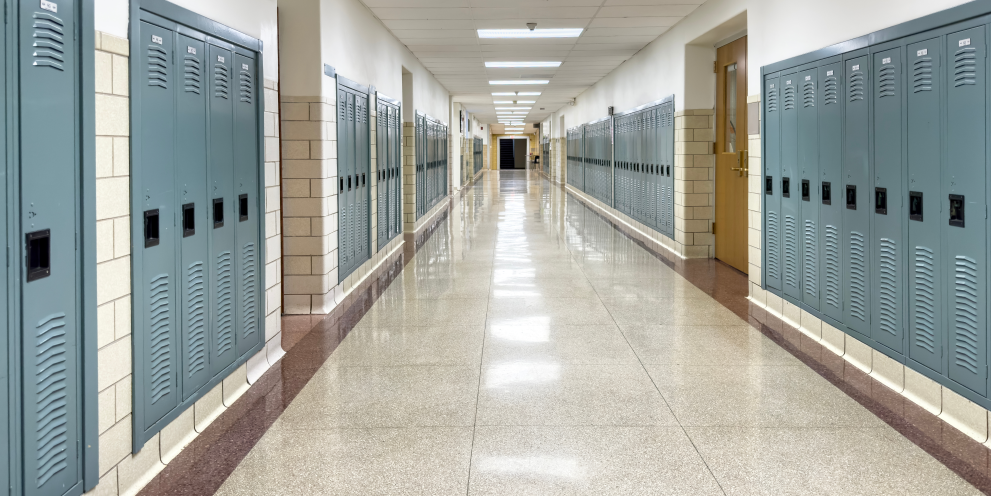
Imagine a future where Europe's schools and educational institutions are transformed into models of energy efficiency, providing our children and teachers with healthier, more comfortable, and more sustainable learning environments. It is not only about reducing our carbon footprint or cutting down on energy costs. It is also about ensuring our children and those who dedicate their lives to education are given a quality environment that is conducive to increased well-being
Renovating for resilience and well-being
The war in Ukraine has brought the vulnerability of Europe’s families, schools, offices, and businesses to energy price hikes into sharp focus, and highlighted how important a healthy indoor environment is. The recently revised Energy Performance of Buildings Directive has the potential to significantly improve the well-being and living standards of millions of citizens across the EU.
People must be at the heart of any policy on energy renovation of buildings. After all, we spend about 90% of our time in buildings, for example in our homes, workplaces, schools, and universities.
Impact of renovating educational institutions
Schools and, in general, educational institutions can benefit the lives of countless students, their families, teachers and other staff working in the school. By focusing our efforts on the renovation of schools, this can have multiple benefits for people, students’ productivity, energy bills, and others.
In 2020, there were 93.3 million pupils and students enrolled in the EU from a pre-primary level to tertiary education.
In terms of energy savings, schools can account for a significant share of a municipality’s energy consumption. For example, nurseries to lower secondary schools in Rome account for 95% of total municipal energy consumption of its public buildings.
The benefits of renovating schools can then become evident to the families of those pupils and students, and ultimately boost the desire for renovating their homes and workplaces.
High school in Romania turned into nearly zero-energy building
The ‘Elie Radu’ energy technical high school is in Ploiești, Romania, and has around 250 students and 60 teachers frequenting the building. It used to face problems related to heat and sound insulation and poor indoor air quality. It underwent a deep energy renovation, and the high school now provides a much healthier and comfortable indoor environment suitable for learning.
Thanks to the renovation investment, the high school reduced its energy consumption by around 60%, allowing it to almost entirely ensure its energy needs from photovoltaic panels on the roof during the warm seasons.
It is also about health and safety
Studies have shown that poor air quality in the classroom greatly increases the risk of children developing respiratory illnesses. Renovating schools can prevent this.
Other concerns include earthquake stability, especially for countries like Croatia and Italy, the removal of asbestos, and reducing mould.
The primary school of 'Viale Puglie' in Milano was renovated into a nearly zero-energy building while at the same time making it earthquake-proof and removing the asbestos.
Prioritise people and accelerate renovation of schools
The transformation of Europe's educational institutions into energy-efficient models not only reduces greenhouse gas emissions and energy costs but also prioritises the well-being of students and staff. The benefits are multiple, from better health and improved indoor environment, increased thermal and acoustic comfort to more productive students and safer classrooms. Let’s put people first and renovate to future proof Europe’s schools!
Recommended links
- Report: Renovate2Recover: How transformational are the National Recovery Plans for buildings renovation?
- IEA report: Multiple benefits of energy efficiency
- Building 4 People – Quantifying the benefits of energy renovation investments in schools, offices and hospitals
About the author
Afroditi Psatha is the project and events manager for the Renovate Europe Campaign, and for EuroACE – Energy Efficient Buildings. In the past, she worked for the Irish and Greek Permanent Representations to the European Union.
Disclaimer: This article is a contribution from a partner. All rights reserved.
Neither the European Commission nor any person acting on behalf of the Commission is responsible for the use that might be made of the information in the article. The opinions expressed are those of the author(s) only and should not be considered as representative of the European Commission’s official position.
Details
- Publication date
- 2 May 2024
- Author
- European Climate, Infrastructure and Environment Executive Agency
